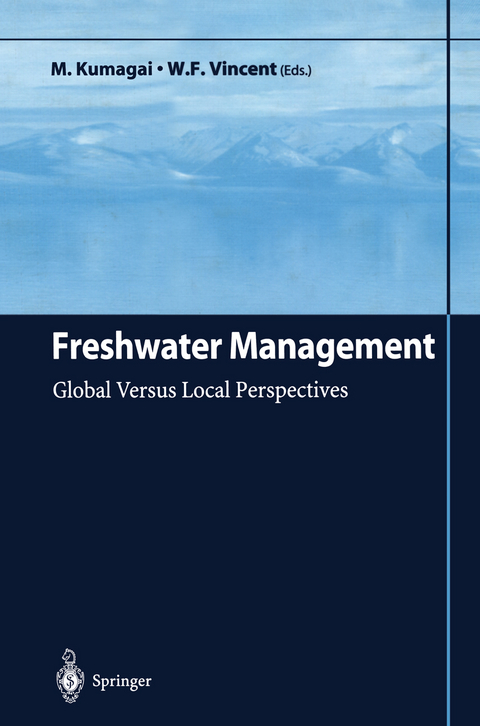
Freshwater Management
Springer Verlag, Japan
978-4-431-00488-2 (ISBN)
1 Lessons from Lake Biwa and Other Asian Lakes: Global and Local Perspectives.- 2 Perspectives on Environmental Monitoring.- 2-1. Monitoring and Assessing Global Water Quality — the GEMS/Water Experience.- 2-2. Bio-optical Variability in the Littoral Zone: Local Heterogeneity and Implications for Water Quality Monitoring.- 2-3. Generic Approaches Towards Water Quality Monitoring Based on Paleolimnology.- 3 Approaches Towards Environmental Restoration.- 3-1. Global Perspectives and Limitations of Lake Restoration.- 3-2. Removing Environmental Contaminants with Aquatic Plants and Algae.- 4 Strategies for Ecological Modeling.- 4-1. Generic Numerical Models in Aquatic Ecology.- 4-2. Site-Specific Models and the Importance of Benthic-Pelagic Coupling.- 5 Recovery from Eutrophication.- 5-1. Restoration of Eutrophic Lakes: a Global Perspective.- 5-2. Local Perspectives in Lake Restoration and Rehabilitation.- 6 Requirements for Lake Management.- 6-1. Strategies for Lake Management in an Increasingly Global Environment.- 6-2. Lake Management Requirements from a Local Perspective.- 7 Global and Local Approaches to Freshwater Management: The Way Ahead.
| Erscheint lt. Verlag | 23.6.2005 |
|---|---|
| Zusatzinfo | XIII, 233 p. |
| Verlagsort | Tokyo |
| Sprache | englisch |
| Maße | 155 x 235 mm |
| Themenwelt | Naturwissenschaften ► Biologie ► Ökologie / Naturschutz |
| Naturwissenschaften ► Geowissenschaften | |
| Technik ► Umwelttechnik / Biotechnologie | |
| ISBN-10 | 4-431-00488-2 / 4431004882 |
| ISBN-13 | 978-4-431-00488-2 / 9784431004882 |
| Zustand | Neuware |
| Haben Sie eine Frage zum Produkt? |
aus dem Bereich


